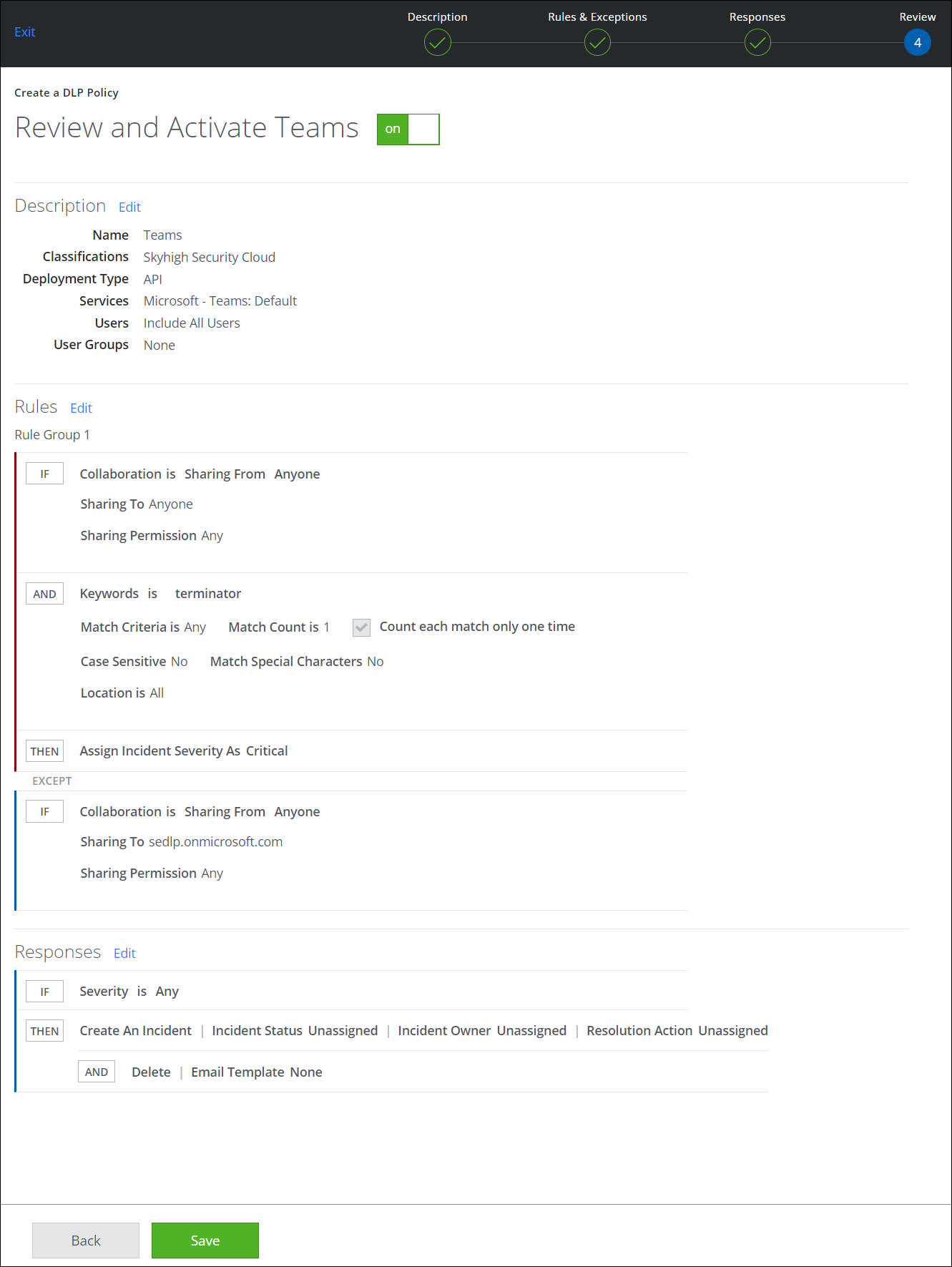Skyhigh Security Cloud Release Notes 6.2.1 (January, 2023)
Skyhigh Security Service Edge 6.2.1 will be released to the EU Production environment on January 25, 2023, and to the US Production environment on January 31, 2023.
Skyhigh Security Help Site Rebranding
With this release, the Skyhigh Security Help documentation website (this site) will be rebranded with the new Skyhigh Security logo and colors. The update will also introduce a new side navigation bar and improved search filters for easier navigation. And as always, when you are signed in, you can leave feedback on each Help topic.
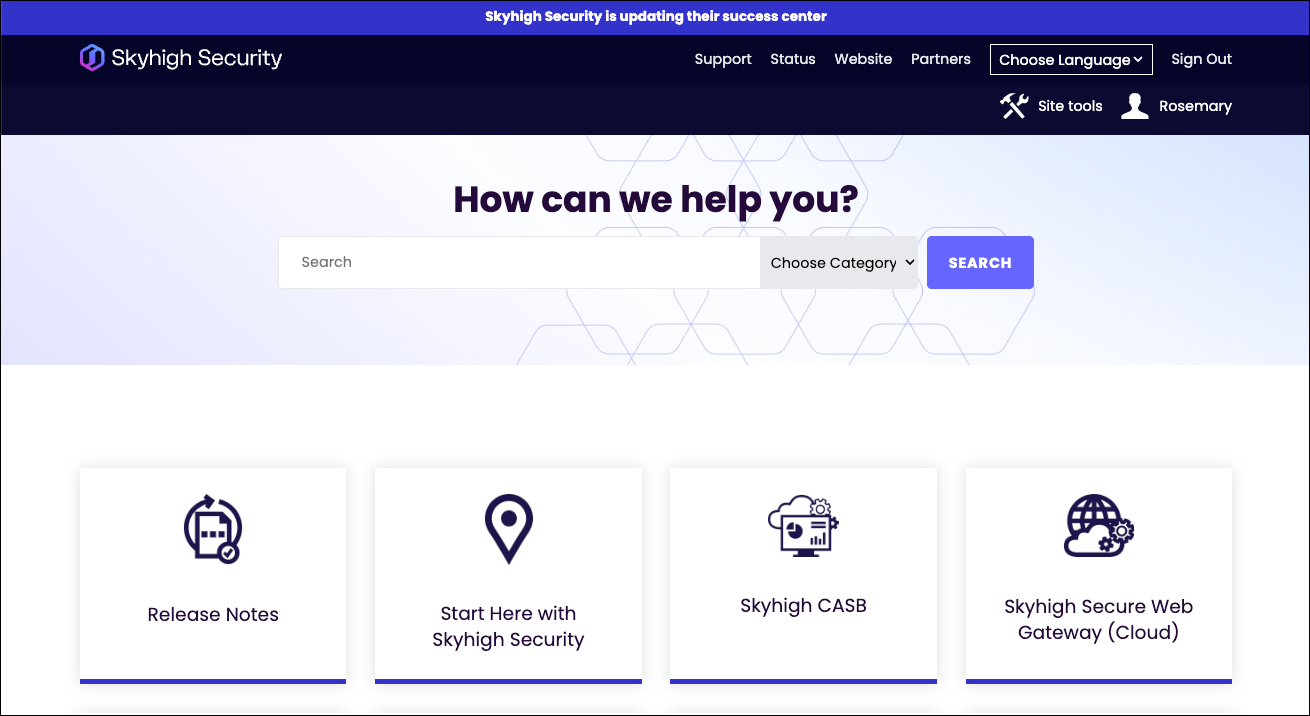
Skyhigh Secure Web Gateway (Cloud)
New Location for Storing Log Data
Log data collected when users access Secure Web Gateway can now be stored by the admin with India selected as the data residency option, which allows you to comply with your organization's or region's data residency requirements.
For more information, see Configure Where to Store Log Data.
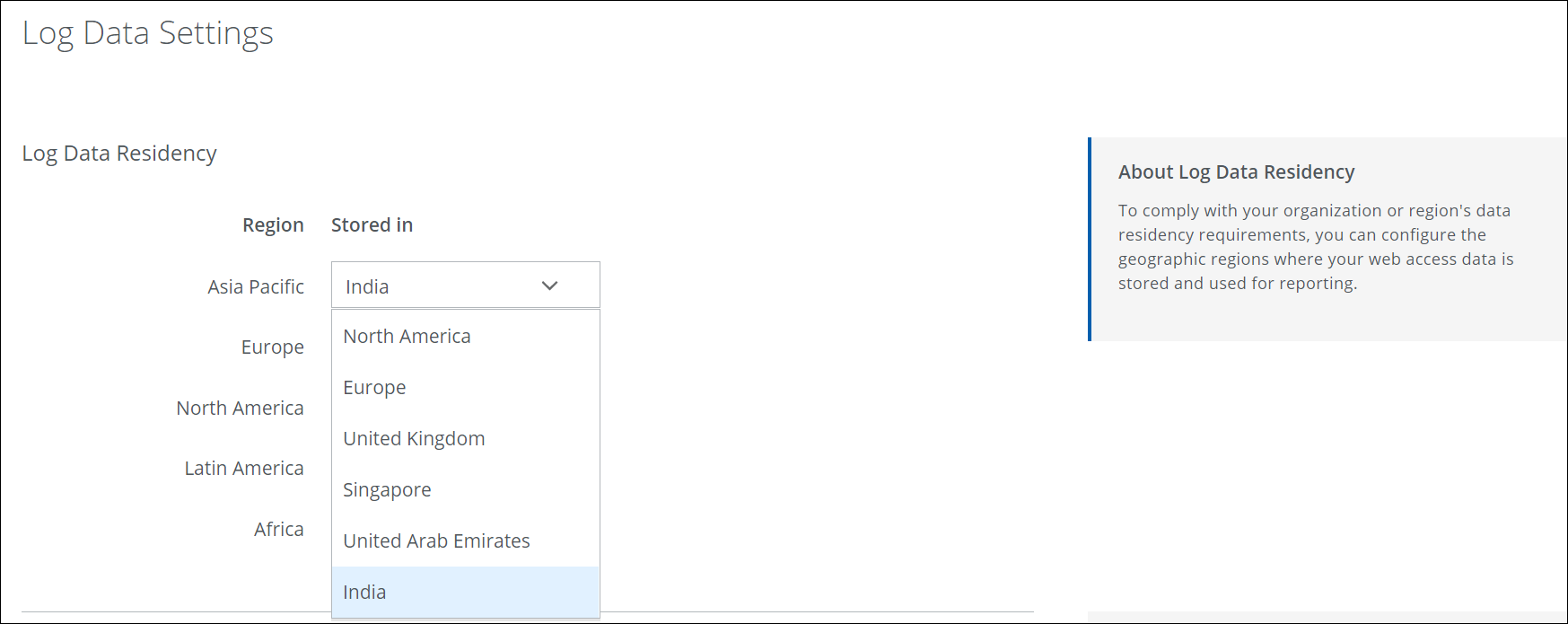
Skyhigh CASB
ServiceNow Tokyo Q4 2022 Support
Skyhigh CASB now supports ServiceNow Tokyo Q4 2022. For details, see Supported Versions of Structured Apps.

Updates to Service Groups UI
The old Service Groups page (found under Governance) was removed from the Skyhigh CASB menu and the Service Group New menu is renamed Service Groups. For details, see Service Groups.
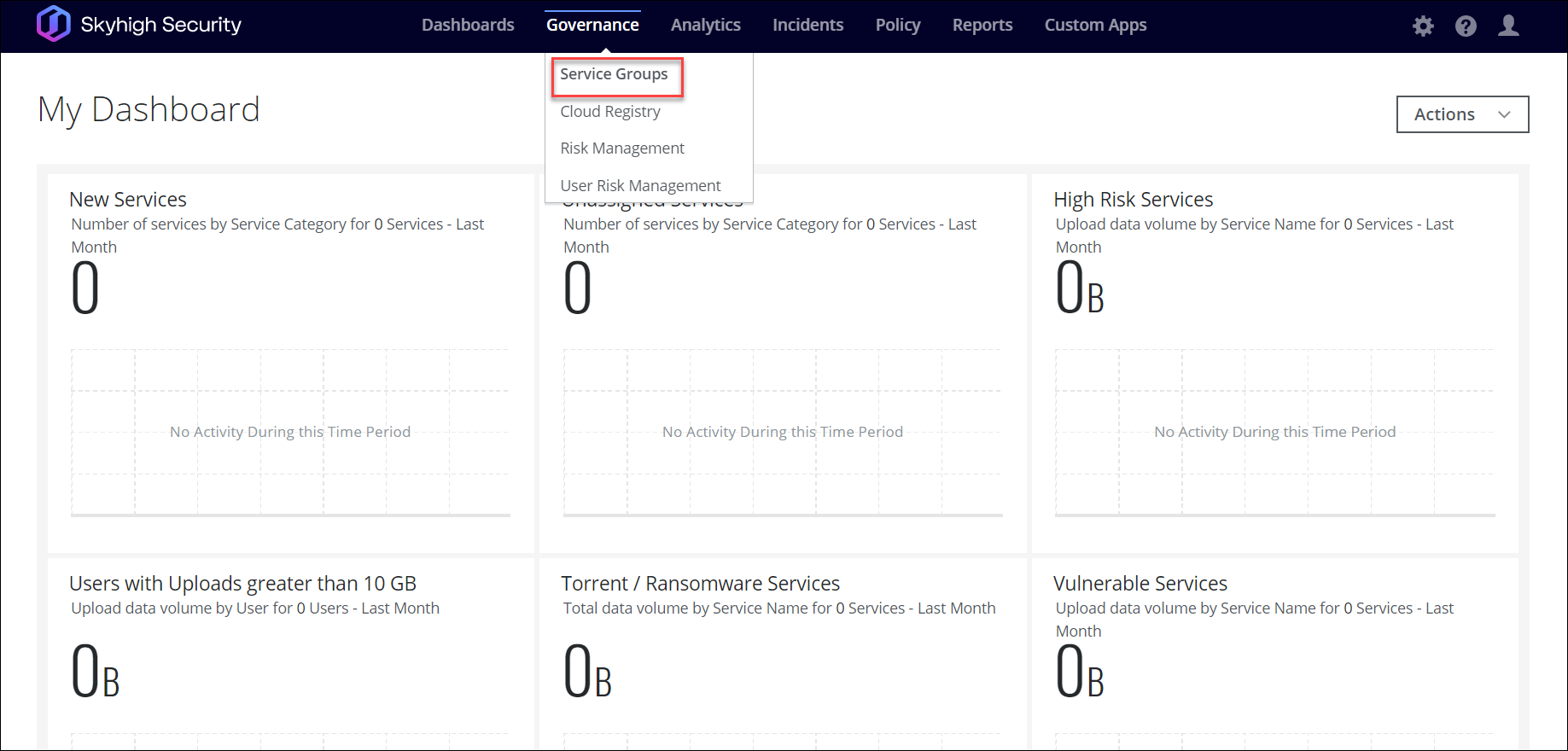
Skyhigh Recommended Policy Groups
Skyhigh recommends this list of default policy groups. These policy groups include all critical policies in AWS, Azure, GCP Critical Policies, and container policies. Then you can run config audit on-demand scans against these policy groups later. For details, see Create a Configuration Audit Policy Groups.
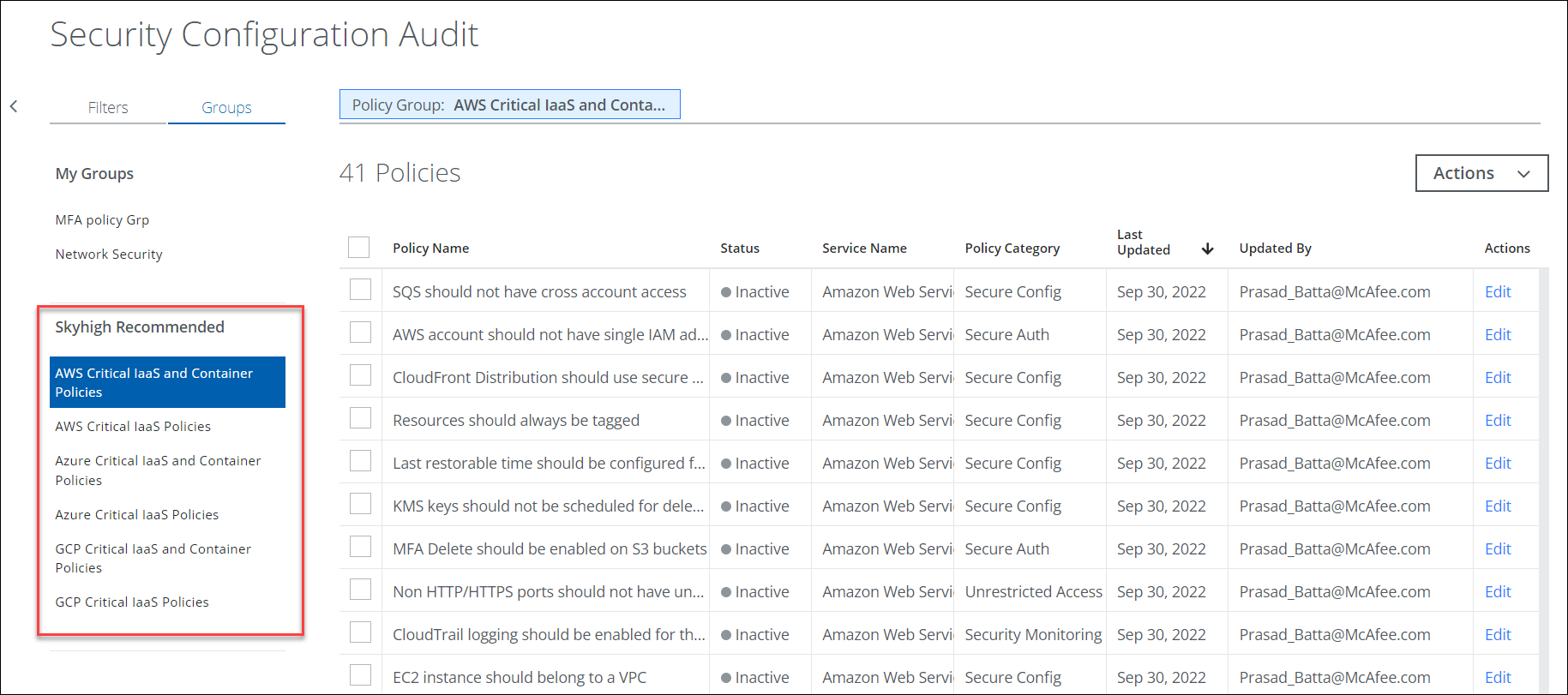
Reset API credentials for Zscaler
Skyhigh CASB allows you to reset the API credentials for your Zscaler instance. On the Firewall/Proxy Integration page, you can configure your Zscaler instance to reset API credentials and authenticate. For details, see Automatic Proxy Configuration for Zscaler.
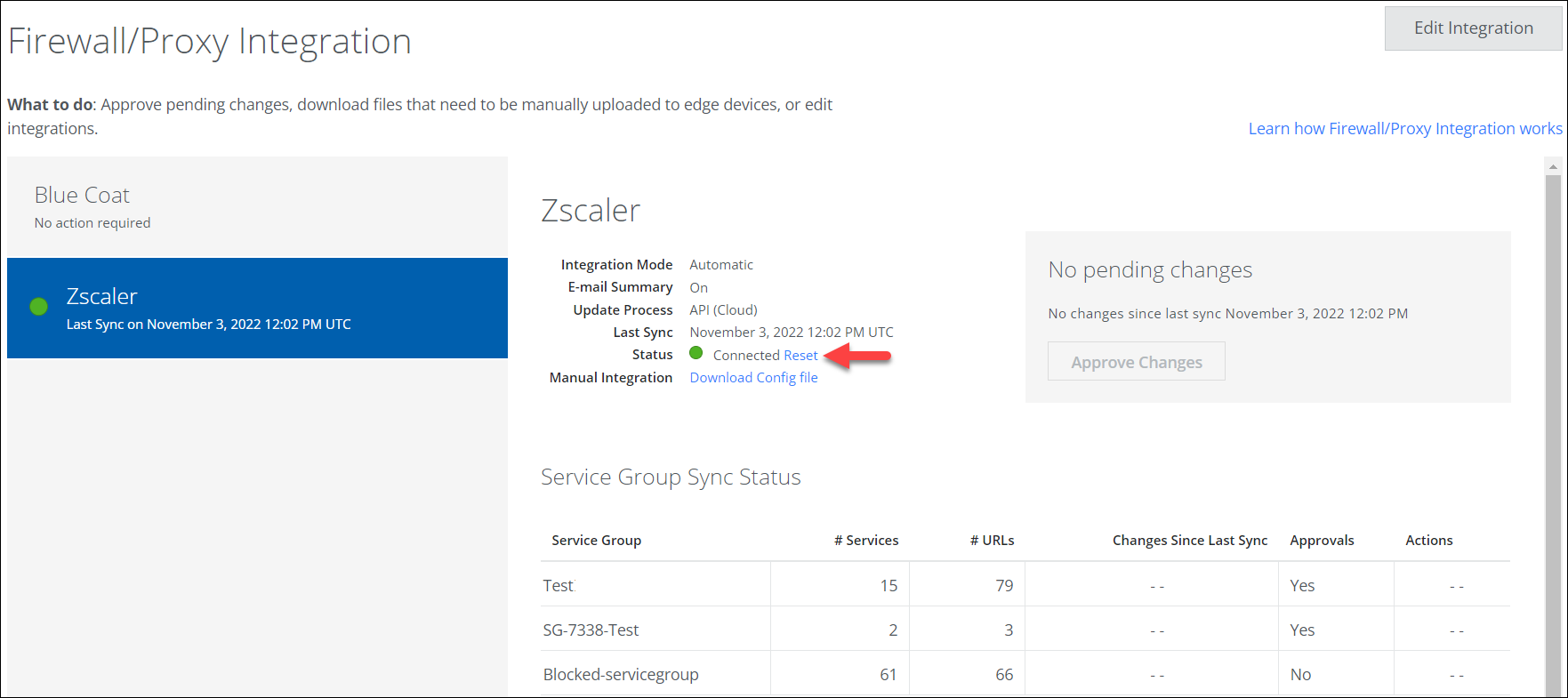
Secure Collaboration for Microsoft Teams
Skyhigh CASB leverages the updated Microsoft Graph API, which provides visibility into guest user details as part of Microsoft Teams meeting chat/group chat event data. Skyhigh CASB for Microsoft Teams secures user collaboration and allows security admins to define DLP policies for detecting and removing sensitive data posted by internal users in meeting chats or group chats with guest users as members. You can define the DLP policy for Microsoft Teams in Skyhigh CASB. For details, see Microsoft Teams Secure Collaboration Use Cases.
Slack Huddles Support
Skyhigh CASB for Slack provides a way for organizations to extend existing data loss prevention (DLP) policies to Slack huddles, which are used to set up quick meetings with internal or external users of a channel. For details, see About Skyhigh CASB for Slack.
Filter for User Risk (Limited Availability)
You can now filter your search by User Risk score for Low, Medium, and High-risk activities on the Activities page (found under Incidents > User Activity > Activities). For details, see About Activities.
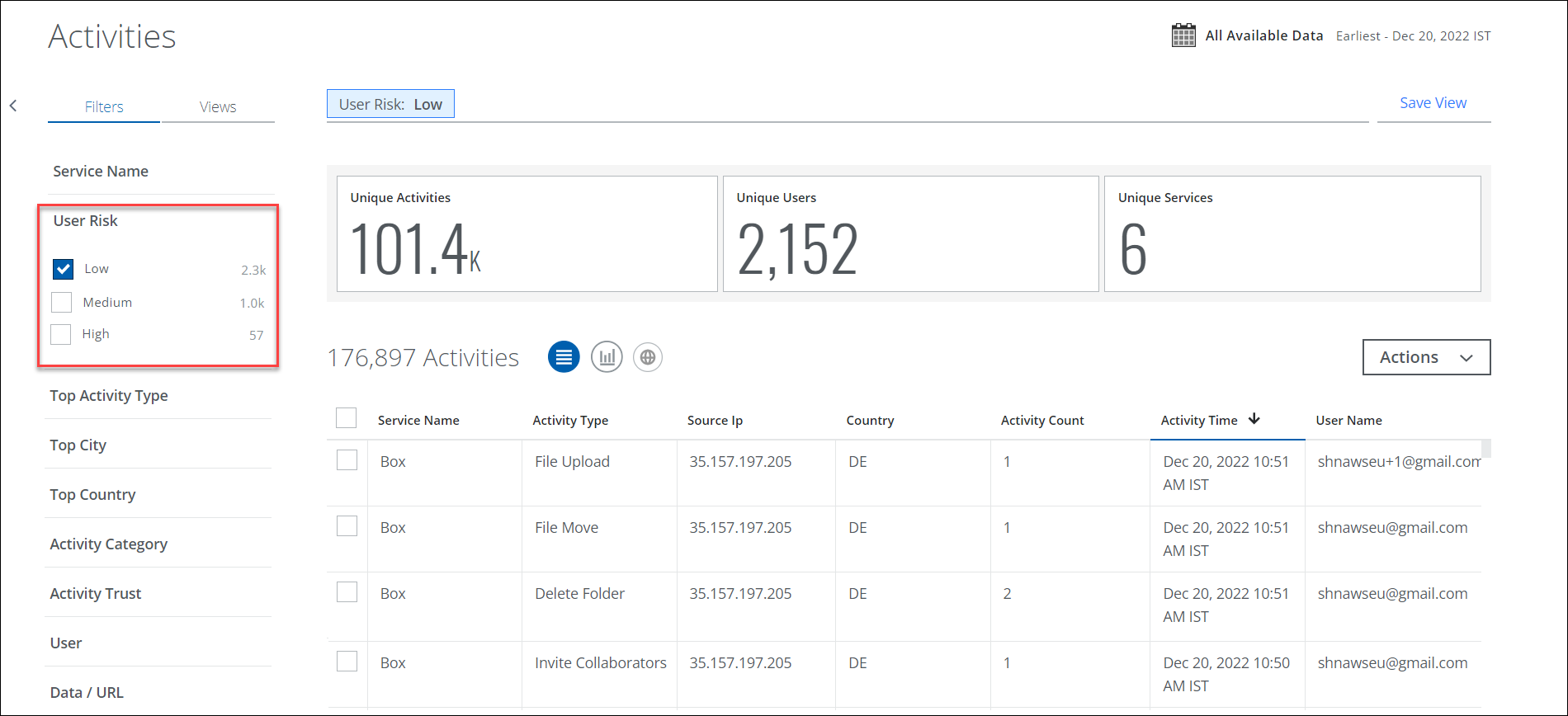
Cloud Access Control with RBI (Limited Availability)
Cloud Access Control with RBI allows frictionless onboarding of longtail SaaS applications and prevents data exfiltration by implementing CAP policies on an unmanaged device. Subsequently, CAP policies block activities on an unmanaged device, such as uploads, downloads, clipboard copy, clipboard paste, and printing. Cloud applications can be accessed directly from managed devices without any restrictions. For details, see Cloud Access Controls with RBI.
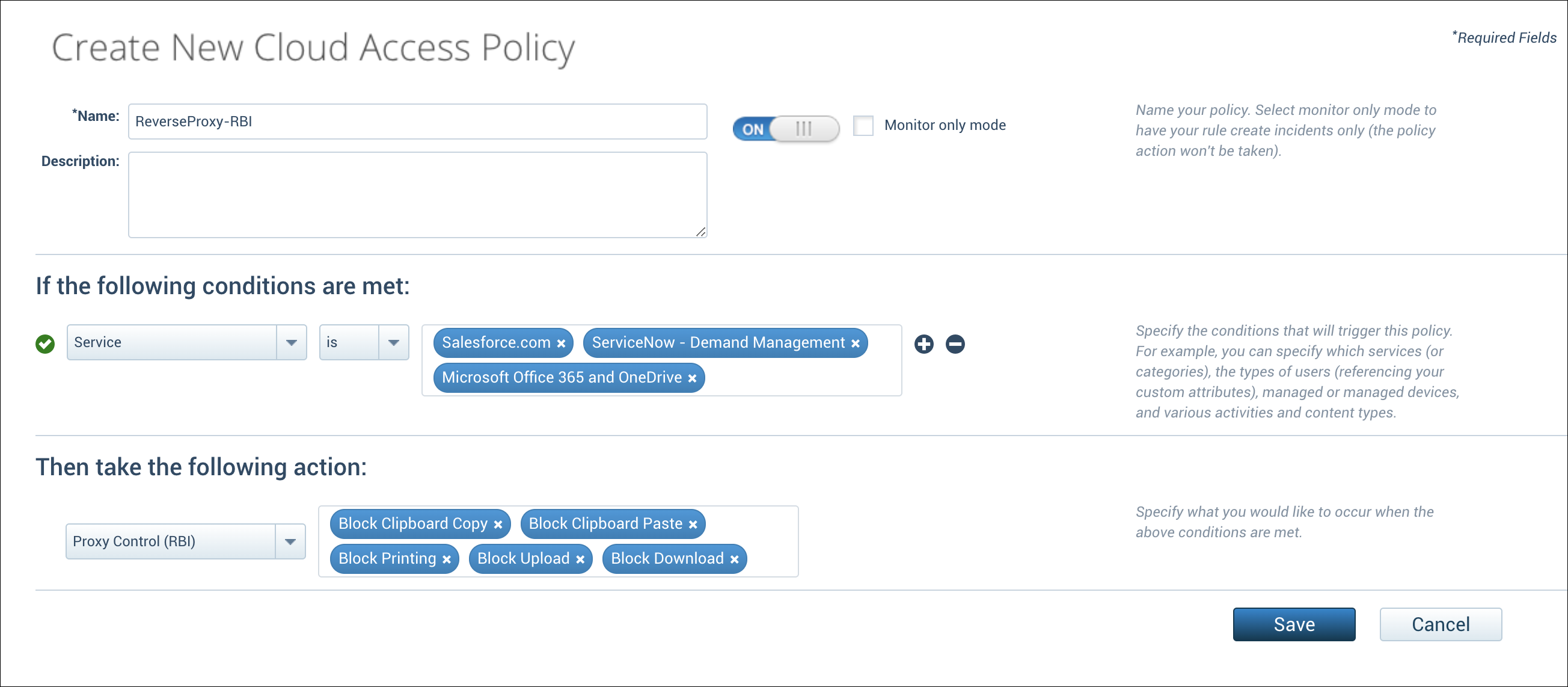
Skyhigh CASB for Airtable (Limited Availability)
Skyhigh CASB for Airtable allows Security Operations Center (SOC) Admins to apply DLP controls on sensitive text data posted in cells or comments in Airtable. DLP for files/attachments is not supported by Skyhigh CASB for Airtable. For details, see About Skyhigh CASB for Airtable.
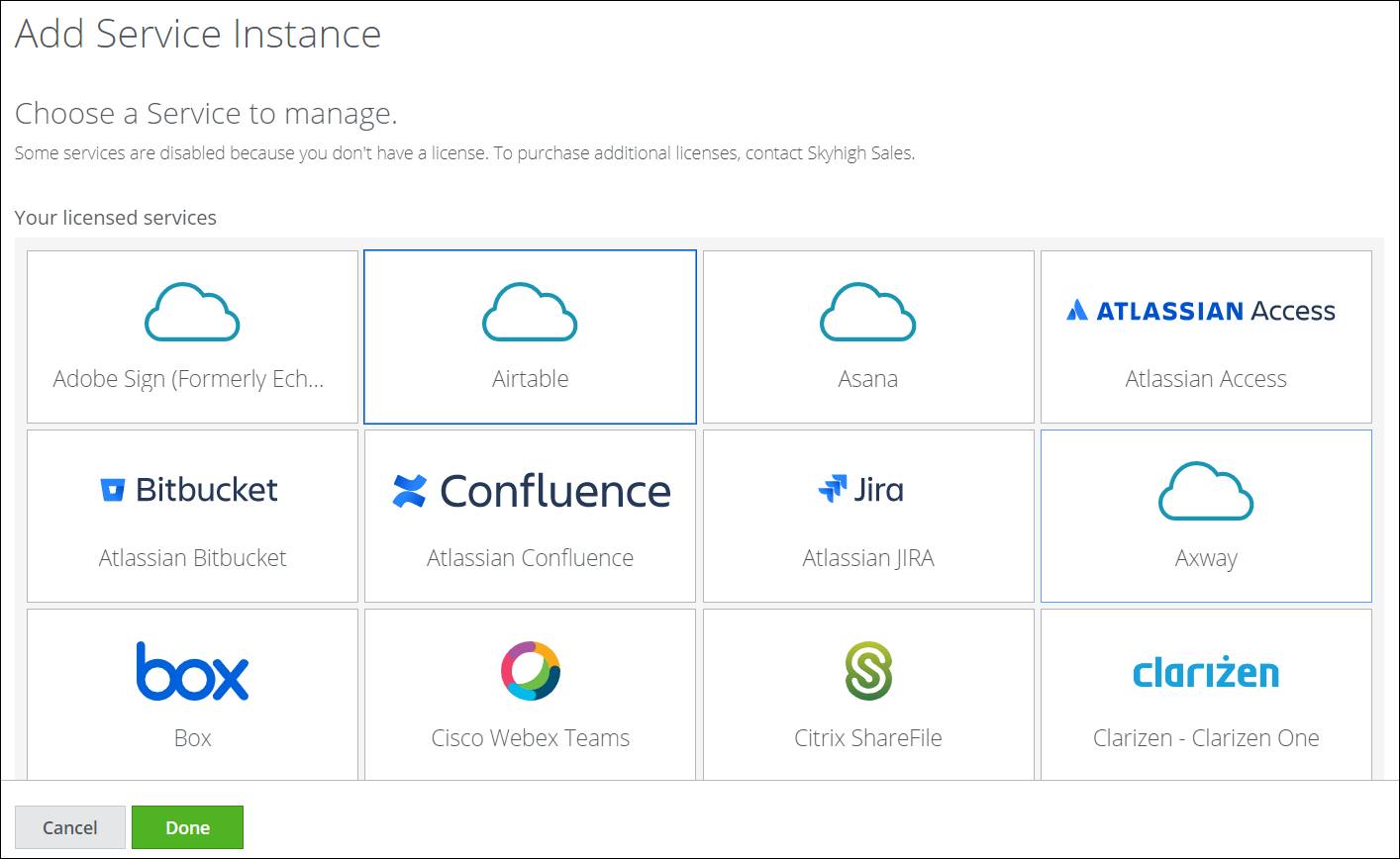
SharePoint Controls based on Privacy Settings (Limited Availability)
Skyhigh CASB provides control over sensitive content posted by users in SharePoint sites. Skyhigh CASB for SharePoint now allows security admins to define the DLP policy rule based on SharePoint site privacy settings (public or private). This feature allows admins to restrict sensitive data from being uploaded to SharePoint sites based on their privacy settings. For details, see SharePoint Controls based on Privacy Settings.
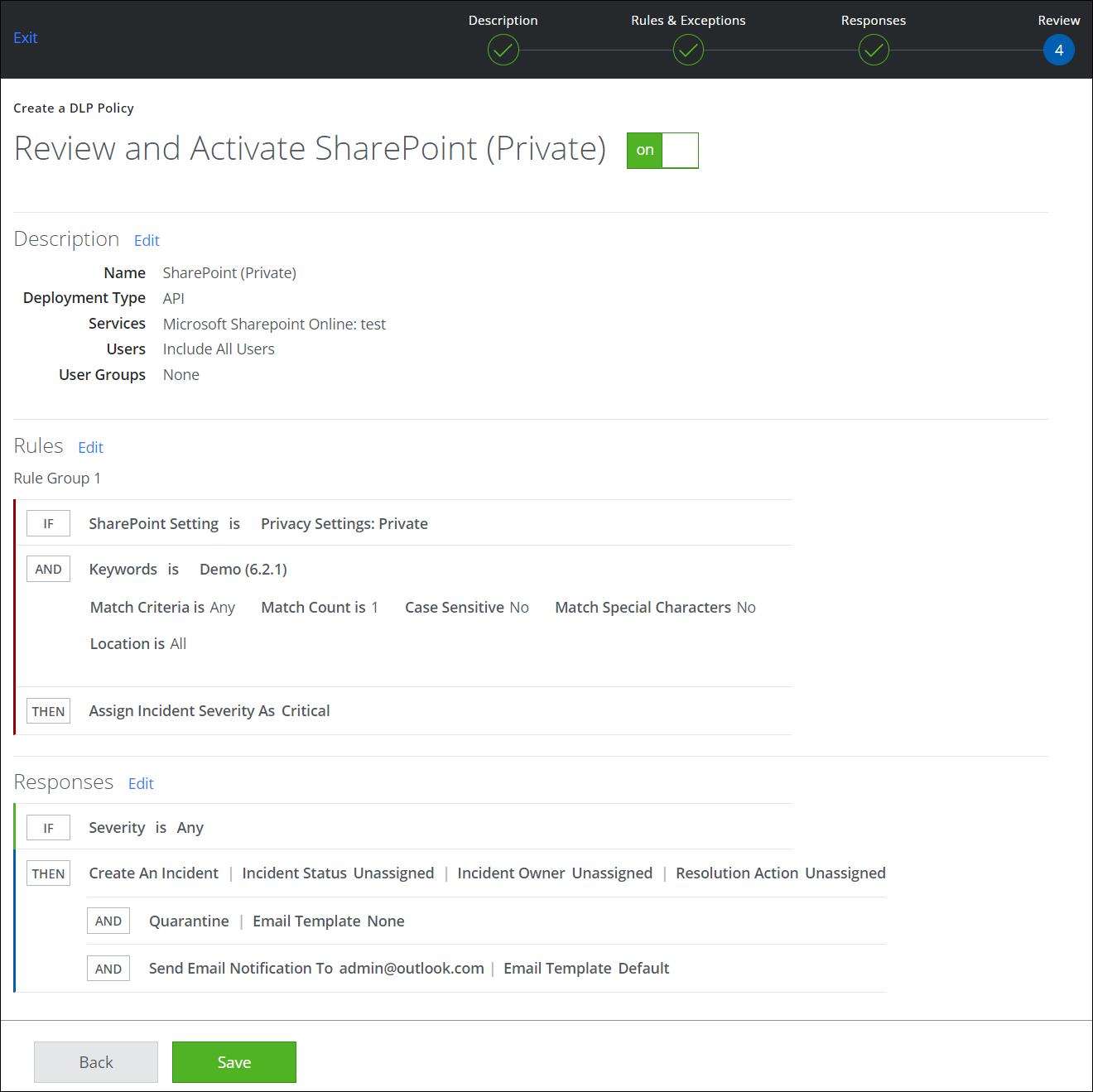
Improved Azure AD Sync (Limited Availability)
Skyhigh CASB's periodic sync jobs with Azure AD have been improved, allowing tenants with large Office 365 and Azure AD user groups to complete user ingestion smoothly. This architectural improvement reduces the time to sync the user groups' change delta.
Skyhigh Data Protection
Unified EDM for SSE and SWG Web Apps
Exact Data Match (EDM) Enhanced fingerprints allows Skyhigh Security Service Edge users to protect sensitive user database records in a row and column format typically extracted from a database in CSV format, build structured indexes of that data on-premises, and use DLP policies to prevent sensitive information from leaving the organization. EDM is now available for both Security Service Edge and Secure Web Gateway web apps. This release also includes multi-language support, improved scalability, performance, and resume paused uploads. For details, see About Exact Data Match (EDM) Fingerprints.
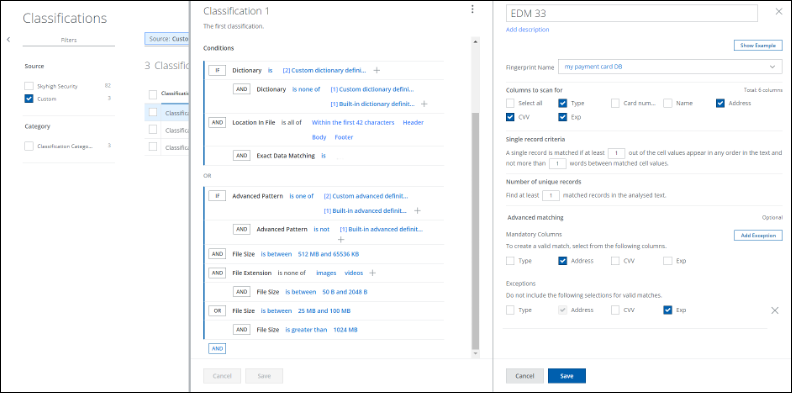
OCR and EDM (Enhanced) for Skyhigh CASB
The new Classifications features including EDM (Enhanced) Fingerprints and Regular Expression-based Dictionaries are now available to all Skyhigh CASB customers. This allows you to categorize your structured data and use the EDM fingerprint in a DLP policy to run scans to secure your company's sensitive data. In addition, the Skyhigh Security DLP engine extracts text from supported image files using best-in-class Optical Character Recognition (OCR), now supported for Skyhigh CASB as well as SSE. For details see About OCR and About Exact Data Match (EDM) Fingerprints.
Validators for Regular Expression Definitions
Now when you create Classifications that use Regular Expressions as Advanced Patterns, you can add a validator and a score to your Regular Expression. You can also create custom regular expression definitions, and define a new validator. For details, see Create Custom Advanced Patterns.
Classifications Dictionary Improvements
Classifications dictionaries now support definitions to specify Case-sensitive, Starts with, Ends with, and add a Score to weight individual entries. For details, see Create a Custom Keyword Dictionary.
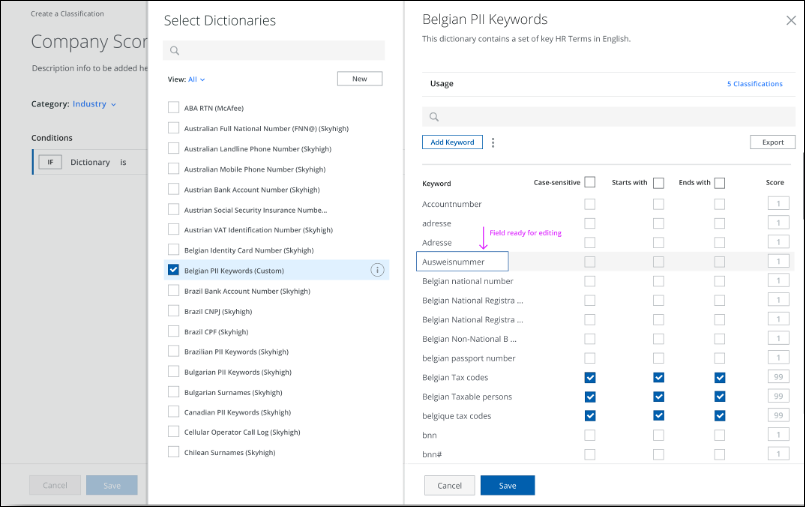
Filter for Unsuccessful Deleted Remediation Status
This filter allows you to search for the Unsuccessful Deleted remediation status, to more easily find and remediate failed items.
For more details, see Policy Incidents Page

